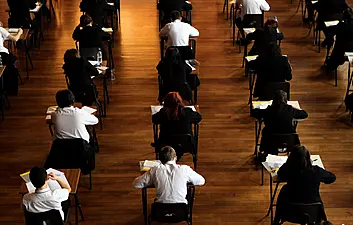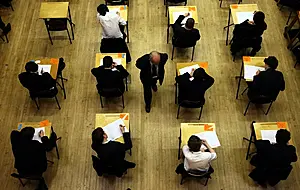A High Court judge has said he will give his decision as soon as possible in the lead challenge over the calculated grades process adopted for the Leaving Certificate exams of 2020 in response to the Covid crisis.
The case was brought by Belvedere College Dublin student Freddie Sherry, of Newtown, Celbridge, Co Kildare, against the Minister for Education and Skills and the State.
Today, following a hearing lasting some five weeks, Mr Justice Charles Meenan reserved his decision. He said the case involved complex facts and issues, but he would give his judgment as soon as possible.
He said he had to have regard to the evidence and legal submissions, some of which was somewhat complex.
He was also conscious that Leaving Cert 2021 "is now in view" and the calculated grades system may be “a matter of some importance”.
Similar actions
Mr Sherry's case is the first of some 50 similar actions which have been put on hold until his case is determined.
He claimed a direction by the Minister last August to remove school historical records in the calculated grades process resulted in him being unfairly downgraded by 55 points in his Leaving Cert.
He was “hugely disappointed” his teachers’ estimated CAO points total of 542 for him was reduced to 487 under the process. His first course choice was pharmacy in TCD.

He claimed the Minister’s direction interfered in the calculated grades process overseen by an independent steering committee and was “unlawful”.
The Minister and State denied the claims and maintained there was no reason to believe Mr Sherry would be in an improved position if historical school data was included.
They said students in his school, fee-paying Belvedere College, received on average higher scores in 2020 compared to the 2017-19 period. There was no basis for any assertion Mr Sherry would have been treated more favourably in another category of school., the defendants said.
The calculated grades process has been completed and CAO offers issued. Any attempt to reinstate school historical data would be inappropriate or disproportionate as it would cast doubt on the results of significant numbers of students and their entitlement to college places, they argued.







